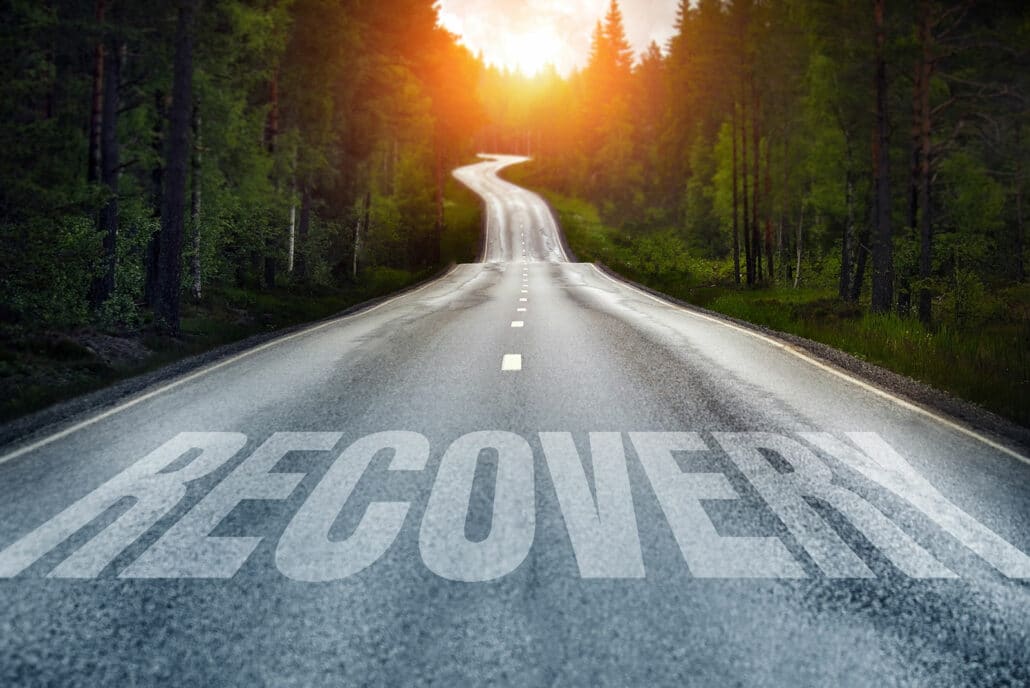For those suffering from addiction, getting treatment is the first step. However, after you’ve successfully completed your rehabilitation program, you’re usually left out on your own. That is unless you join the Smart Recovery nation. Think of Smart Recovery as a global community of recovering addicts learning to manage life on their own terms with the help and support of others around them.
Table of Contents
What is Smart Recovery?
Smart Recovery is an extremely large support group for those who suffer from alcohol and other drug addictions and process disorders. Known formally as Self Management and Recovery Training, this support group is perfect for life after exiting rehab. It provides you with a plethora of helpful tools and resources that you can use to challenge negative thinking and empower yourself to stay on your journey of sobriety for the long term.

Who is Smart Recovery For?
Smart Recovery is for individuals suffering from addiction, their family members, and friends. These addictions can include:
Alcoholism
- Chronic Severe
- Young Antisocial
- Intermediate Familial
- Functional
- Young Adult
Drug Addiction
- Antidepressants
- Oxycodone
- Heroin
- Marijuana
- Cocaine
Process Addictions / Behavioral Disorders
- Internet Addiction
- Gambling Addiction
- Food Addiction
- Sex Addiction
- Shopping Addiction
How Does Smart Recovery Work?
Smart Recovery focuses on the tool of self-empowerment. This program provides various support resources that help people stay motivated after rehab. During Smart Recovery meetings, members will learn how to prevent cravings and relearn the importance of a well-balanced life.
At a typical Smart recovery meeting, you’ll experience the following topics:
- Replacing self-destructive ideas and thoughts
- Self-discipline, self-motivation, and self-responsibility
- Recognizing and accepting impulses
- How to set goals and achievable milestones
- Patients during recovery
- Resisting urges to act on negative behavior
- Applying Smart recovery resources and lessons
One major twist to Smart programs is that relapses aren’t viewed as failures. There’s no starting all over again. Rather, relapses are viewed as situations where you can discuss what happened, learn new methods for preventing similar situations in the future, and move forward on your journey of sobriety.
Those who undergo the Smart journey will learn to treat these perceived ‘failures’ along their journey as mistakes. With less pressure about messing up their entire journey with one instance, many individuals find it a lot easier to get back on their journey of abstinence with Smart Recovery programs.

The Four Principles of Smart Recovery
The Smart recovery process is based on four main principles. As individuals go through the program, they will learn the value of each principle and how to implement it in their daily lives.
1. Building Up and Maintaining Motivation
After attending formal rehabilitation, maintaining your sobriety can be challenging. Temptations arise, and you need to stay motivated to overcome them. Smart counseling sessions will allow you to learn valuable ways to build up your motivation toward sobriety and maintain it going into the future. With an in-person support system encouraging you to stay sober, it’s much easier to stay motivated on your journey.
2. Coping With Unwanted Urges
As part of your Smart Recovery program, you’ll learn how to successfully identify unhelpful urges and cope with them. You’ll establish what actions are acceptable to you and which are not. You’ll learn to establish boundaries for your actions to help minimize your unwanted urges. For example, getting rid of harmful relationships, avoiding alcohol-related events, and even steering clear of potential relapse triggers.
3. Managing Feelings, Behaviors, and Thoughts
It isn’t uncommon to have a plethora of negative thoughts when you first start out on your sobriety journey. A key principle of the Smart Recovery program is using uplifting beliefs and positive thoughts to replace those negative ones. As you face many highs and lows, you’ll be equipped with positive thinking that will help you to modify your feelings to overcome unwanted urges and pitfalls.
4. Living a Balanced Lifestyle
To ensure a successful long-term recovery from your addiction, you need to commit to having a more balanced and healthy lifestyle. The healthier you feel, the more exercise you get, and the better your sleep is, the easier it’s going to be to avoid temptations and stay on track.

Cognitive Behavioral Therapy With the ABCs
One particular evidence-based tactic that is introduced to patients in the Smart Recovery program is the ABCs. This type of cognitive behavioral therapy is intended to help challenge a person’s irrational thinking patterns that actually influence their addiction. The ABCs stand for the following:
A: Activating Events
Identify the exact start of your negative emotion or thought.
B: Beliefs
Assess your beliefs about the activating event.
C: Consequences
Determine how you’re feeling and how you’re behaving.
D: Dispute
Challenge your dysfunctional beliefs.
E: Effective New Thinking
Find a new belief to replace your existing dysfunctional one.
The Pros of Undergoing Smart Recovery
Before you join any sort of recovery program, you want to know what it can provide for you. When it comes to Smart Recovery, there are many benefits that you can gain.
It Gives You the Power of Choice
Unfortunately, many other recovery programs forget to remind you of the power of choice. They offer many different rules, and it can feel as if you’re a slave to them. With Smart Recovery, you’re constantly reminded of your choice of power. You can choose what actions you take and the consequences of them. If you make the wrong choice, it’s viewed simply as a mistake, and you learn from it. You don’t start over.
Local and Online Meetups
Smart meetings are relatively informal and are conducted by treatment facilitators. Participants are encouraged to share their stories and tips on what is helping them on their journey of sobriety. Many times, meetups will have open discussions that are more informal than traditional AA and other addiction recovery meetings. There are Smart meetings in cities throughout the globe, and there are even online meetings for those who don’t want to go in person.
Evidence-Based Practices
During Smart Recovery, you’ll be introduced to various evidence-based practices that can help you with your journey of sobriety. These include a change plan worksheet, cost/benefit analysis, hierarchy of values, destructive imagery and self-talk awareness and refusal method, ABCs of rational emotive behavior therapy, role-playing/rehearsing, and brainstorming. All of these tools are meant to help you put your addictive behaviors into perspective instead of feeling like a slave to them.
Online Resources
When you join the Smart recovery program, you’ll have access to a plethora of online resources. These include a recovery toolbox and recommended reading books. There are online chat rooms to help with support and message boards you can post questions on. With Smart Recovery, there is always someone that can help when you need it.

The Cons of Undergoing Smart Recovery
While the Smart Recovery program offers a plethora of great benefits for attendees, it does come with some cons. It’s always important to understand the cons of any recovery program before you determine which one is perfect for your individual situation.
While Smart Recovery has over 2,4000 weekly meetings in over 21 countries around the globe, face-to-face meetings may not always be in a location near you. If you live in a city that doesn’t host a Smart Recovery meeting, you’ll have to undergo virtual meetings. Some people may be more uncomfortable with virtual meetings as opposed to in-person meetings.
Get the Professional Help That You Need Today
If you or someone you know is suffering from addiction, then it’s time to get professional assistance from Long Island Interventions. Please contact Long Island Interventions for information about Smart Recovery near you.

